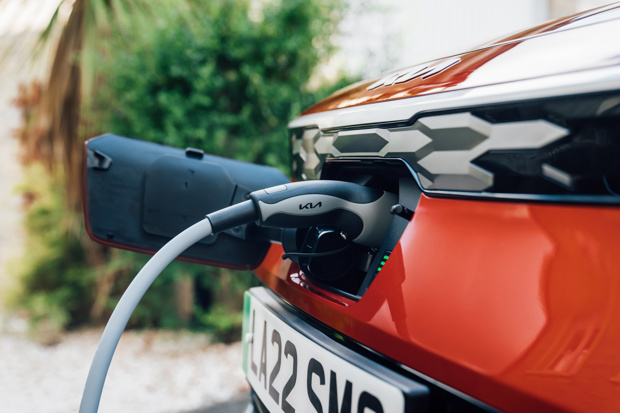Your Complete Electric Car Buying Guide
Your Complete Electric Car Buying Guide the shift towards electric vehicles (EVs) is no longer a trend but a clear direction for the future of transportation. With rising environmental concerns, advancements in technology, and evolving government incentives, electric cars are rapidly gaining popularity. If you’re considering making the switch to an electric car, you’re not alone. However, the sheer variety of choices, features, and considerations can feel overwhelming. This electric car buying guide will help you navigate the landscape of EVs, ensuring that you make an informed and confident decision.
In this comprehensive guide, we’ll cover everything from the basics of electric vehicles to advanced features, pricing, and the pros and cons of different models. Whether you’re a first-time EV buyer or a seasoned pro looking for an upgrade, this guide is designed to cater to your needs.

What Is an Electric Car?
An electric car, or EV, is a vehicle that runs entirely or partially on electricity instead of gasoline or diesel. Unlike traditional cars that use internal combustion engines, electric cars rely on one or more electric motors powered by rechargeable battery packs. The main benefits of electric cars include zero tailpipe emissions, lower operating costs, and a smaller carbon footprint compared to gasoline-powered cars.
There are two main types of electric cars:
- Battery Electric Vehicles (BEVs): These vehicles run entirely on electricity and are charged using an external power source. BEVs do not have an internal combustion engine, meaning they produce zero emissions while driving.
- Plug-in Hybrid Electric Vehicles (PHEVs): These cars combine a gasoline engine with an electric motor, offering the flexibility to drive using electricity for shorter trips and gasoline for longer journeys. PHEVs can be plugged into an electric outlet for charging, but they also have the ability to run on gasoline.
Why Buy an Electric Car?
1. Environmental Benefits
One of the main reasons to switch to an electric car is the environmental impact. Electric cars produce zero tailpipe emissions, which helps reduce air pollution and greenhouse gas emissions. As more renewable energy sources such as wind and solar power are integrated into the grid, the environmental benefits of EVs will continue to increase.
2. Lower Operating Costs
Electric cars are more affordable to maintain than traditional vehicles. With fewer moving parts, there is less wear and tear, and EVs do not require oil changes. Charging an electric car is typically cheaper than refueling with gasoline, and many EV owners find that their electricity costs are significantly lower than the price of gasoline.
3. Government Incentives
Governments around the world offer incentives and rebates to encourage the adoption of electric vehicles. These can include tax credits, rebates for home charging stations, and exemptions from certain taxes or fees. Researching these incentives is an essential step in your electric car buying guide as they can significantly reduce the initial purchase cost.
4. Quiet and Smooth Driving Experience
Electric cars provide a smooth, quiet driving experience. Without the noise and vibrations associated with internal combustion engines, EVs offer a serene ride. Additionally, electric motors deliver instant torque, which can result in quicker acceleration compared to gasoline-powered cars.
5. Convenience of Home Charging
With an electric car, charging is as simple as plugging it in at home, just like charging your smartphone. Many EV owners set their vehicles to charge overnight, ensuring that the car is ready to go in the morning with a full battery.
Key Considerations When Buying an Electric Car
Before diving into specific models and prices, there are several factors to consider to make sure you’re making the right choice for your needs. The following sections of this electric car buying guide will help you evaluate the most important elements to consider.
1. Range
One of the most important considerations when purchasing an electric vehicle is its range – how far can it travel on a single charge? The range varies depending on the model and battery size, and for many buyers, this is the top priority.
- Shorter Range: If your daily commute is relatively short (under 100 miles), a car with a smaller battery may be sufficient.
- Longer Range: If you plan to use your EV for long trips or have a longer commute, you may want a model with a higher range. Many modern electric cars offer ranges of 250 miles or more on a full charge.
The range of an EV is also influenced by driving habits, weather conditions, and road type. Therefore, it’s wise to plan for occasional charging stops if you’re going beyond the vehicle’s typical range.
2. Charging Infrastructure
Having a reliable and convenient charging infrastructure is key to making an electric vehicle viable for daily use. You’ll need to consider the availability of charging stations both at home and in public spaces. Here are a few key points to keep in mind:
- Home Charging: Most EV owners install a Level 2 home charging station, which can charge their vehicle overnight. This option is convenient and cost-effective, but it requires an initial investment.
- Public Charging: Look at the availability of charging stations in your area or along common routes you travel. There are networks like Tesla Superchargers, ChargePoint, and Electrify America that have extensive charging stations, but some regions may have less coverage.
When considering charging, it’s important to check the vehicle’s compatibility with different charging networks to ensure that you won’t face limitations in your area.
3. Price
While electric vehicles tend to have higher upfront costs than traditional cars, the savings on fuel and maintenance can make them a more cost-effective choice over the long run. When shopping for an EV, be sure to factor in the total cost of ownership, which includes:
- Initial Price: While prices vary by model, the average price of an electric car is generally higher than a gas-powered car. However, with the variety of models available, there are more affordable options on the market than ever before.
- Government Incentives: As mentioned earlier, many governments offer rebates or tax credits for electric vehicle purchases, which can significantly lower the price.
- Operating Costs: Take into account how much you’ll save on fuel and maintenance. As a general rule, electric cars cost less to maintain than internal combustion engine vehicles due to fewer moving parts.
Be sure to evaluate the total cost of ownership over the car’s lifespan, which can help you better understand the long-term financial benefits.
4. Performance
Electric vehicles are known for their smooth and powerful performance. Thanks to the immediate torque delivered by the electric motor, many EVs offer excellent acceleration and handling. When reviewing different models, be sure to test drive and assess factors such as:
- Acceleration: Electric vehicles typically have quick acceleration, making them feel more responsive than traditional cars.
- Driving Experience: Whether you prefer a more dynamic driving experience or a more relaxed one, EVs offer a wide range of performance levels to suit your preference.
5. Size and Features
As you would with any car, it’s essential to consider the size and features that matter most to you. For instance:
- Interior Space: If you have a family or need extra cargo space, consider the interior dimensions of the electric car. Some models offer spacious interiors, while others are more compact.
- Infotainment and Technology: Many EVs come equipped with advanced technology, such as large touchscreens, smartphone integration, and driver-assist features. Be sure to check out these options to find a vehicle that meets your tech needs.
6. Brand and Warranty
The brand reputation and warranty of an electric vehicle are also crucial to consider. Well-established manufacturers like Tesla, Nissan, and Chevrolet offer long warranties and solid customer support. In addition, some automakers provide a warranty specifically for the battery, ensuring that you’re covered in case of any issues.
Top Electric Car Models to Consider
Now that you have a clear understanding of what to look for in an electric vehicle, let’s explore some of the top models available on the market.
1. Tesla Model 3
The Tesla Model 3 remains one of the most popular electric cars due to its impressive range, high performance, and cutting-edge technology. With a range of up to 358 miles, the Model 3 offers both standard and long-range versions to meet different driving needs.
2. Chevrolet Bolt EV
The Chevrolet Bolt EV is a great option for those looking for an affordable yet reliable electric car. With a range of 259 miles, it offers excellent value for the price and is well-suited for daily commutes.
3. Nissan Leaf
As one of the pioneers in the electric vehicle market, the Nissan Leaf is known for its affordability and practicality. With a range of 150-226 miles depending on the model, the Leaf is perfect for urban commuters.
4. Ford Mustang Mach-E
The Ford Mustang Mach-E is an all-electric SUV that offers impressive performance, a spacious interior, and a range of up to 305 miles. It combines the power and excitement of the Mustang with the efficiency of an electric vehicle.
Buying an electric vehicle is a significant decision that requires careful thought and consideration. From the type of battery to the range and performance features, there’s a lot to weigh when choosing the right EV. By following this electric car buying guide, you’ll be well-equipped to make an informed decision that aligns with your lifestyle, budget, and values. With more options and advancements than ever before, now is the perfect time to make the switch to an electric car.



